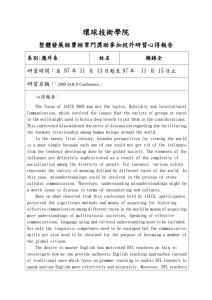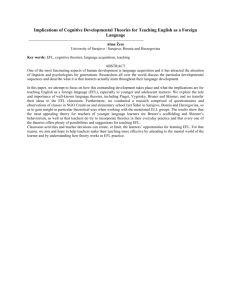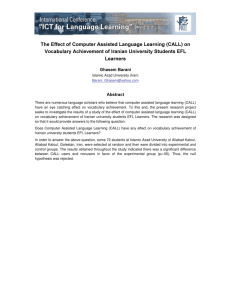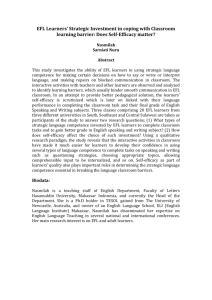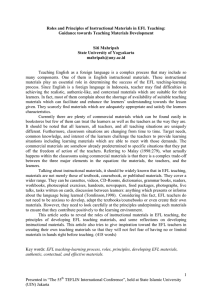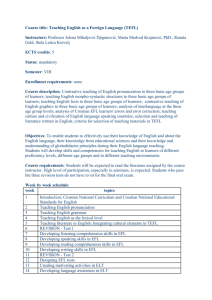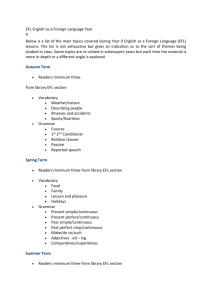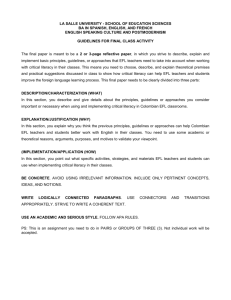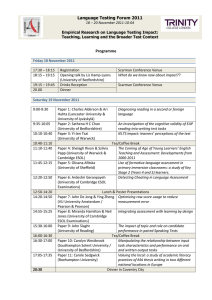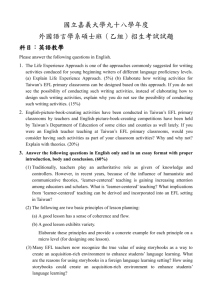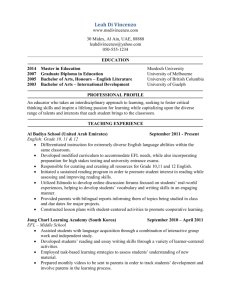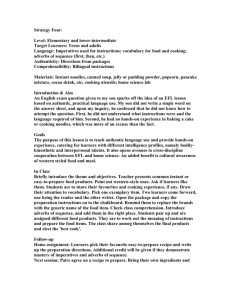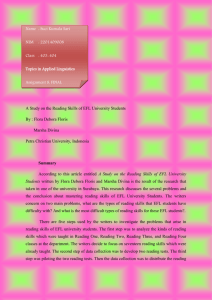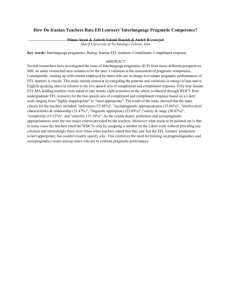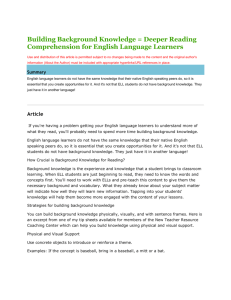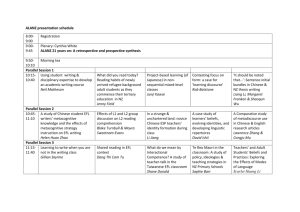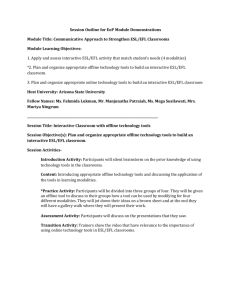motivation language
advertisement
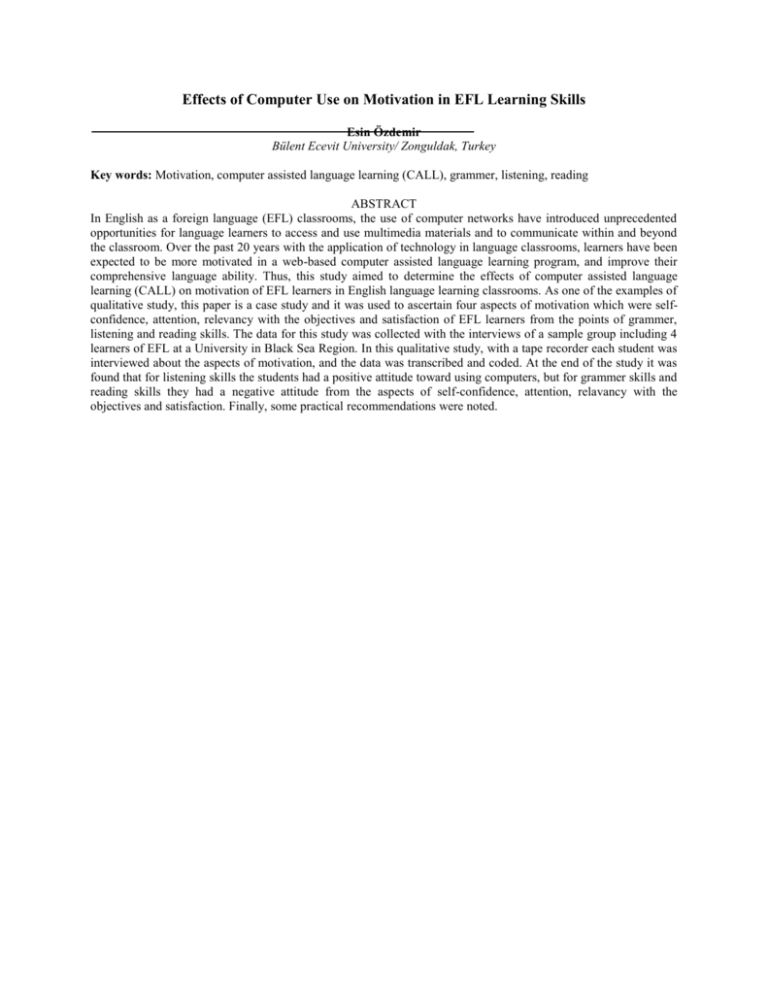
Effects of Computer Use on Motivation in EFL Learning Skills Esin Özdemir Bülent Ecevit University/ Zonguldak, Turkey Key words: Motivation, computer assisted language learning (CALL), grammer, listening, reading ABSTRACT In English as a foreign language (EFL) classrooms, the use of computer networks have introduced unprecedented opportunities for language learners to access and use multimedia materials and to communicate within and beyond the classroom. Over the past 20 years with the application of technology in language classrooms, learners have been expected to be more motivated in a web-based computer assisted language learning program, and improve their comprehensive language ability. Thus, this study aimed to determine the effects of computer assisted language learning (CALL) on motivation of EFL learners in English language learning classrooms. As one of the examples of qualitative study, this paper is a case study and it was used to ascertain four aspects of motivation which were selfconfidence, attention, relevancy with the objectives and satisfaction of EFL learners from the points of grammer, listening and reading skills. The data for this study was collected with the interviews of a sample group including 4 learners of EFL at a University in Black Sea Region. In this qualitative study, with a tape recorder each student was interviewed about the aspects of motivation, and the data was transcribed and coded. At the end of the study it was found that for listening skills the students had a positive attitude toward using computers, but for grammer skills and reading skills they had a negative attitude from the aspects of self-confidence, attention, relavancy with the objectives and satisfaction. Finally, some practical recommendations were noted.


